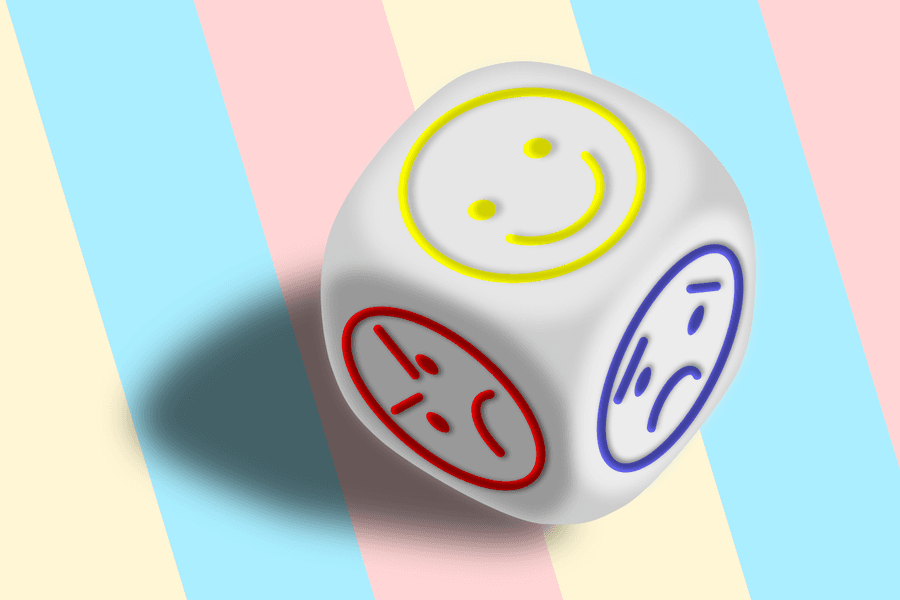How to calm your inner storm | Psyche Guides
Curated from: psyche.co
Ideas, facts & insights covering these topics:
9 ideas
·12.1K reads
54
Explore the World's Best Ideas
Join today and uncover 100+ curated journeys from 50+ topics. Unlock access to our mobile app with extensive features.
What We Do When We Struggle Emotionally
We all have experienced strong emotional reactions in our lives when our mind is overwhelmed and in turmoil. We struggle to manage our feelings and usually don’t know what to do with them.
This results in the emotions getting stuck inside us, manifesting in mental or physical problems.
305
2.51K reads
Emotion Regulation
When we try to manage and cope up with our emotions by redirecting, deflecting or changing our thoughts, we attempt to emotionally regulate ourselves, but if we are too overwhelmed, we cannot effectively regulate our emotions. We then experience emotional dysregulation, something that happens in moments of acute distress.
Emotional dysregulation happening too often results in depression, suicidal thoughts, self-harming, eating disorders and substance abuse.
286
1.69K reads
Biosocial Theory
Biosocial Theory states that some people have higher levels of emotional sensitivity, and react strongly to events and situations. They also remain in emotional pain for a longer time, having intense feelings like anger, sadness, shame or anxiety.
Often children are pervasively invalidated, routinely getting the information fed in their heads that they are somehow inferior and worthless.
284
1.52K reads
Dialectical Behaviour Therapy (DBT)
Created by American psychologist Marsha Linehan, Dialectical Behaviour Therapy (DBT) is used for treating personality disorders whose symptoms include chronic emotional dysregulation and suicidal thoughts.
DBT provides people with the four skill sets to manage their emotions:
- Core Mindfulness: Living in the present moment.
- Distress Tolerance: Handling crises effectively.
- Emotional Regulation: Managing emotions in a healthy way.
- Interpersonal Effectiveness: Managing relationships effectively.
306
1.32K reads
Re-regulating Intense Emotions: Bend And Breathe
- Do a forward bend posture trying to touch your toe and take a slow, deep breath for a minute.
- Focussed breathing, especially deep, paced exhaling activates our parasympathetic nervous system and makes us calmer and relaxed.
- Ensure your exhales are longer than your inhales.
313
1.27K reads
Increasing Awareness Of Your Emotions
We do not give our emotions any thought, and move through them mechanically, making them the masters of our behaviour. Anyone can push the wrong buttons and trigger us in a few seconds.
We need to be aware of our emotions and feelings by asking ourselves the following:
- What triggered the intense feelings?
- What were our initial thoughts?
- What bodily reaction happened automatically?
- What urges were coming from inside?
- What was the action taken?
Once these questions are asked, we can identify the exact emotion we are going through.
329
962 reads
Handling Your Emotions
Emotions are not good or bad, they are just emotions. One can validate the emotions and accept them. A good way is to write down on a piece of paper what all you feel and then reflect on the same.
Whatever the urge is when we feel angry, depressed, or sad, try to do the opposite of that, doing the reverse of what the urge is telling us to do. One should not suppress their emotions but healthily channelize them.
291
931 reads
The Various States Of Mind
There are three basic modes of thinking that we operate on:
- The reasonable mind is logical and factual.
- The emotional mind is unreasonable and is controlled by emotions and feelings.
- The wise mind is the combination of our reasoning and emotions.
Combining our mind and heart balances our perspective and helps us understand the value of our reasoning and our emotions, without neglecting any one of them.
297
889 reads
Cultivating A Nonjudgmental Stance
For those of us struggling with intense emotions, we can try an exercise for practising non-judgemental behaviour:
Repeat a certain statement like ‘I am lazy’ or ‘I am sad’ and see how it feels emotionally. Notice that after constant repetition, a particular emotion arises in us and we experience a reaction. Now practice a similar repetition but be non-judgemental in the process, not adding fuel to the emotion.
After a few weeks, our awareness towards judging our emotions increases, helping us manage our emotions more effectively.
285
997 reads
IDEAS CURATED BY
Laksh Bedi's ideas are part of this journey:
Learn more about personaldevelopment with this collection
Creating a productive schedule
Avoiding procrastination
Prioritizing tasks effectively
Related collections
Similar ideas
Read & Learn
20x Faster
without
deepstash
with
deepstash
with
deepstash
Personalized microlearning
—
100+ Learning Journeys
—
Access to 200,000+ ideas
—
Access to the mobile app
—
Unlimited idea saving
—
—
Unlimited history
—
—
Unlimited listening to ideas
—
—
Downloading & offline access
—
—
Supercharge your mind with one idea per day
Enter your email and spend 1 minute every day to learn something new.
I agree to receive email updates

